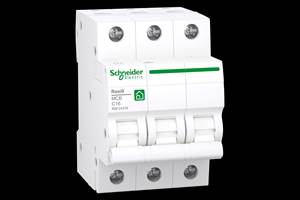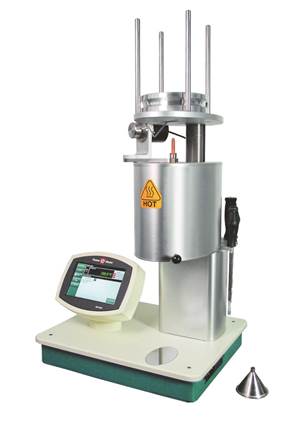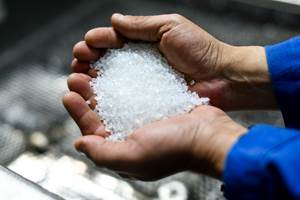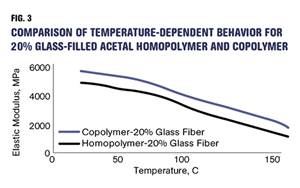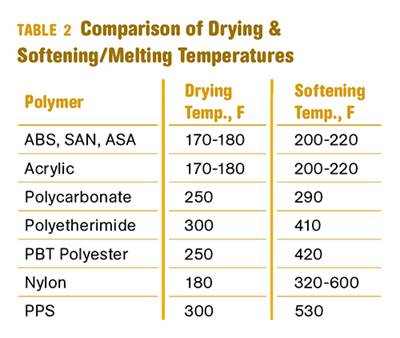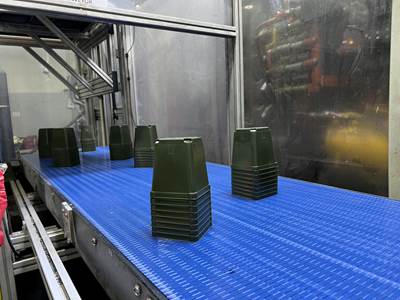At Last...Softer Prices
Softer Prices At LastWhat goes up must come down.
Softer Prices At Last
What goes up must come down. After marching up relentlessly for 18 months, commodity resin prices finally reached the other side of the hill. But rising prices of specialty polyolefins, TPEs, and thermosets haven’t yet changed direction.
PE prices take a dip
Polyethylene prices dropped last month by an average of 3¢/lb. That reversal came after two price increases this year that totaled 7¢/lb and a third hike of 5¢ that has been delayed twice. Although the latter remains on the books, the likelihood of implementation appears slim. PE prices are generally expected to soften even more before year’s end.
Contributing factors: The sudden softness results partly from processors working off inventories built up early in the year when prices were marching steadily upward. More important, say suppliers, is the impact of new resin capacity. For example, Union Carbide recently opened a 1.3-billion-lb/yr LLDPE/HDPE swing plant in Prentiss, Alberta. Suppliers’ operating rates have dropped to the low 80% range, and early forecasts for 2001 peg overall PE resin demand growing no faster than GDP. As a result, suppliers are again starting to wheel and deal.
PVC prices sinking
PVC resin prices fell in July and August from June peaks. Most producers say prices for the period declined a penny each month.
Contributing factors: After a slack period, g-p resin demand rebounded to more normal levels in mid-August, while pipe-resin demand—which is half the market—is still very low.
PS prices past peak
Resin producers and processors report no real price erosion as of mid-August, but resin makers are giving back some of their latest increases. Posted as far back as April, the hikes had only begun to bite in July for some contract customers with 90-day protection.
Contributing factors: Feedstock prices are still pushing up resin tabs. Styrene monomer producers announced a 2¢ hike for Sept. 1. PS demand, however, remains slow, even for summer. Processors say they’re still working off inventories.
ABS hike softened
Dow backpedaled on some of its July 1 ABS increases. Dow, GE, and Bayer boosted prices 8¢/lb across the board. Then, in mid-July, Dow announced a 5¢ temporary voluntary allowance (TVA) on pipe and fitting grades, citing competitive pressures.
Specialty olefins up
Two classes of specialty polyolefins are seeing their first price increases ever. Metallocene polyolefin elastomers (POEs) and plastomers (POPs) are slated to go up this month. Dow, ExxonMobil, and DuPont Dow Elastomers are raising prices 6¢/lb on their Affinity, Exact, and Engage POPs and POEs. ExxonMobil’s increase was effective Sept. 1, while the other two suppliers’ hikes take effect Sept. 15.
Contributing factors: These are the first across-the-board price increases for POEs and POPs since they were introduced in the early 1990s. Although higher feedstock costs are a factor, the move is attributed largely to rising market demand and resin makers’ efforts to improve profit margins to support reinvestment. For example, DuPont Dow plans to triple capacity for its Engage POEs over the next three years, with one new plant scheduled to start up early next year in Plaquemine, La.
TPVs & TPUs going up
DSM Thermoplastic Elastomers raised prices of its Sarlink PP/EPDM thermoplastic vulcanizates (TPVs) by 5% on Aug. 1. The company says this is the first price hike for these products since their introduction a decade ago. Other makers of TPVs and TPOs hiked prices 5-8¢/lb in May and June.
Now makers of TPUs have followed suit. Bayer raised prices of its Texin and Desmopan TPUs by an average of 5% as of Aug. 15. BASF announced a 5% hike on its Elastollan TPUs for Oct. 1. Both firms noted that these were the first price increases in TPUs in three years. Dow and BFGoodrich were considering the situation at press time.
Thermoset polyesters up
There seems to be no slowdown yet in the steady upward march of prices for unsaturated polyesters and vinyl esters. Reichhold announced a 3¢/lb polyester increase for Aug. 1, while Aug. 14 was the effective date for 3¢ hikes from AOC, Ashland, and McWhorter. (AOC also raised gel coats, pigments, and additives by 5¢/lb.) Cook Composites delayed its 3¢ hike to Sept. 1.
Contributing factors: These increases come after a 3¢/lb bump in early June. Suppliers say they have been unable to keep up with accelerating feedstock costs, and their profit margins have eroded significantly.
Related Content
Resins & Additives for Sustainability in Vehicles, Electronics, Packaging & Medical
Material suppliers have been stepping up with resins and additives for the ‘circular economy,’ ranging from mechanically or chemically recycled to biobased content.
Read MoreMelt Flow Rate Testing–Part 1
Though often criticized, MFR is a very good gauge of the relative average molecular weight of the polymer. Since molecular weight (MW) is the driving force behind performance in polymers, it turns out to be a very useful number.
Read MorePrices for All Volume Resins Head Down at End of 2023
Flat-to-downward trajectory for at least this month.
Read MoreHow Do You Like Your Acetal: Homopolymer or Copolymer?
Acetal materials have been a commercial option for more than 50 years.
Read MoreRead Next
Lead the Conversation, Change the Conversation
Coverage of single-use plastics can be both misleading and demoralizing. Here are 10 tips for changing the perception of the plastics industry at your company and in your community.
Read MoreWhy (and What) You Need to Dry
Other than polyolefins, almost every other polymer exhibits some level of polarity and therefore can absorb a certain amount of moisture from the atmosphere. Here’s a look at some of these materials, and what needs to be done to dry them.
Read MoreProcessor Turns to AI to Help Keep Machines Humming
At captive processor McConkey, a new generation of artificial intelligence models, highlighted by ChatGPT, is helping it wade through the shortage of skilled labor and keep its production lines churning out good parts.
Read More








.png;maxWidth=300;quality=90)









